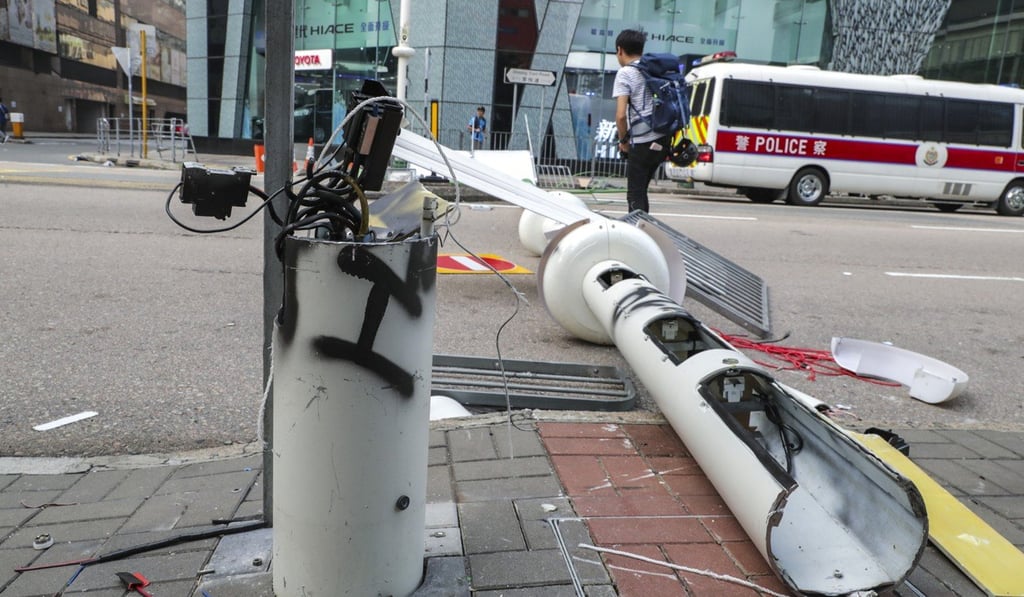Experts give backing to more smart lamp posts across Hong Kong but call for cameras removed
- Committee says project to install 400 of the sophisticated devices across the city should go ahead
- But use of cameras, which turned them into a protest target last year, and their Bluetooth technology should be dropped

A government plan to introduce about 400 multifunctional lamp posts across Hong Kong should go ahead but with their cameras removed and other safeguards created to allay public concerns about privacy and data collection, an expert committee said on Monday.
The lamp posts are part of the government’s “smart city” initiative and come equipped with a range of technologies, including Wi-fi access, Bluetooth detectors, a radio frequency identification tag, meteorological and air quality sensors, as well as thermal detectors and up to two types of cameras. They can collect information about traffic conditions, pedestrian flows, illegal waste dumping and pollution levels. So far, about 50 have been installed around Hong Kong, but several were ripped down last August by anti-government protesters, who suspected they were performing a facial recognition function, which the government denied.

The advisory committee, composed of IT and privacy experts, recommended authorities replace the cameras and Bluetooth detectors with alternatives that are more “privacy friendly”.
“These two are what the public is most concerned with,” said committee member Francis Fong Po-kiu, also honorary president of the Information Technology Federation. The experts expected the initiative would be better received by district councils if the two types of technology were removed.
But a government spokesman said removing those two devices would mean the lamp posts’ ability to measure journey time, detect traffic incidents and monitor road conditions, as well as track illegal dumping, would have to be dropped, at least for now.